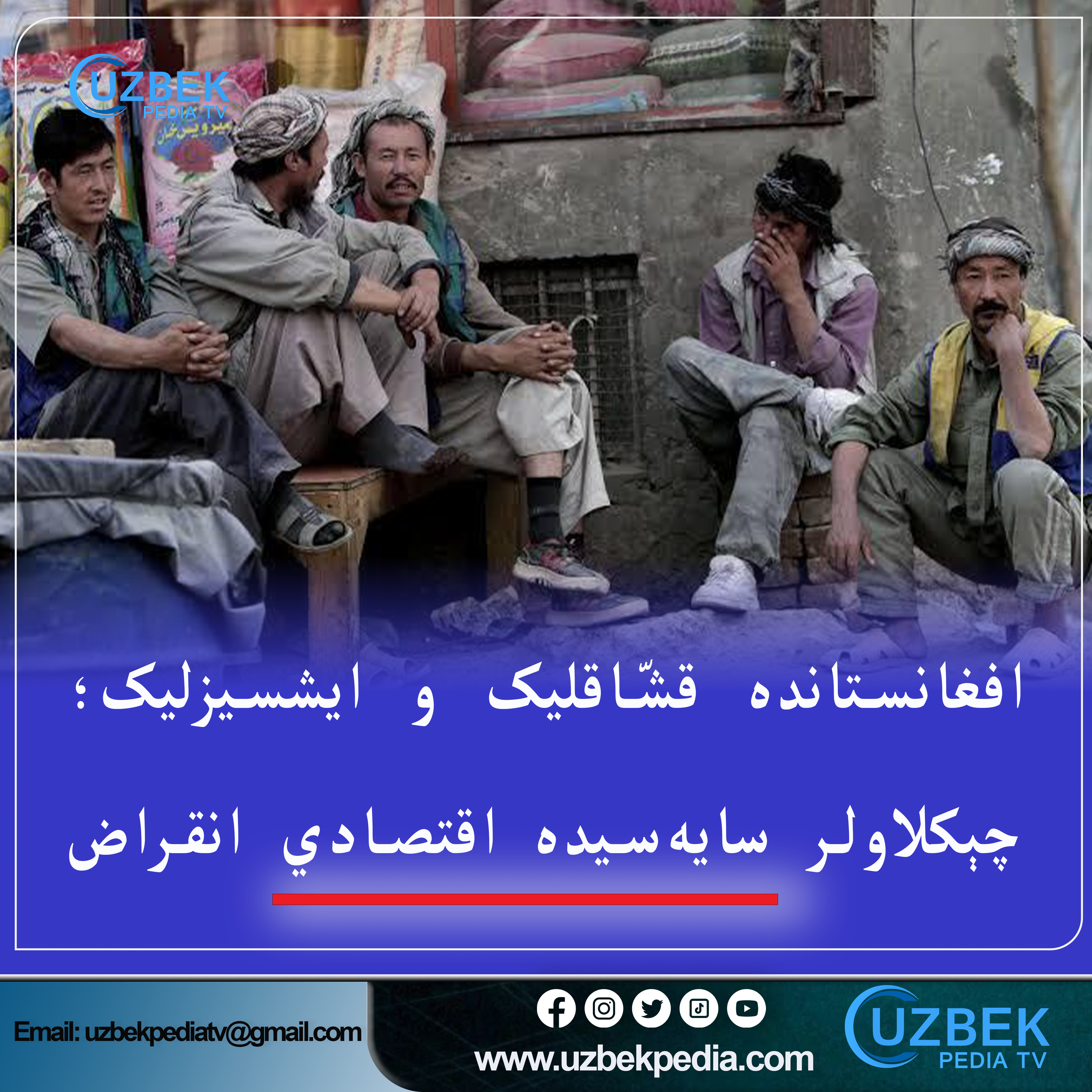Trending

Poverty and Unemployment in Afghanistan; An Economic Crisis Amid Isolation and Restrictions
A number of Afghan citizens have voiced deep concern over rising poverty and unemployment, saying they have reached a deadlock in covering living expenses and can no longer withstand hunger and economic pressure.
A number of Afghan citizens have voiced deep concern over rising poverty and unemployment, saying they have reached a deadlock in covering living expenses and can no longer withstand hunger and economic pressure.
Miraj Ahmad, one of the citizens, says he has been unemployed for four years and, despite repeated efforts, has not been able to secure a job in either government institutions or the private sector.
“I spent all I had.
I mortgaged my house to cover living costs.
Now I have nothing left.
Finding a job has become dependent on being a Talib or belonging to a certain ethnicity,” he says.
Fazl Ahmad, a resident of Ghor province, also complains about severe drought and the destruction of agricultural products.
“Not a single grain of wheat sprouted this year.
The land has dried up, springs have dried, and our sheep have no water.
We don’t know what we will eat this year,” he says.
Pressure on a Fragile Economy Economic experts confirm that the country’s situation is becoming more critical day by day.
Azarkhsh Hafizi, a member of Afghanistan’s Chambers of Commerce and Investment, says that the 2,9% population growth, forced deportations of migrants, and lack of human investment have placed additional pressure on the fragile economy.
He emphasizes that Afghanistan needs an “economic revival” to repair its chronic structural shortcomings.
Mir Shikib Mir, former head of financial services development at the Central Bank, told Uzbekpedia that heavy taxation alongside low business profitability has reduced people’s purchasing power.
According to him, political isolation and Taliban restrictions, especially in women’s education and employment, have worsened unemployment and darkened Afghanistan’s economic outlook for years to come.
UN Warning Meanwhile, UN Secretary-General António Guterres recently reported that Afghanistan’s economic outlook remains fragile, influenced by political instability, financial isolation, trade fluctuations, and declining international aid.
According to a UNDP report published in April 2025, 75% of Afghanistan’s population faces livelihood insecurity, and 90% of households have been affected by economic shocks; the figure rises to 97% among female-headed households.
The report also states that only 7% of women are employed outside the home, compared to 84% of men.
Trade Deficit and Livelihood Crisis Fresh statistics show that Afghanistan’s trade deficit rose by 48% to $ 9,4 billion in the past fiscal year.
Exports fell by 21% to $ 1,79 billion, while imports surged to more than $ 11 billion.
Experts warn that if this trend continues, coupled with declining foreign aid, Afghanistan may face an even greater humanitarian crisis—one that will not only burden the Taliban as the current rulers but also bring serious consequences for the international community.
Reporter: Muhammad Fahim Azimi.
